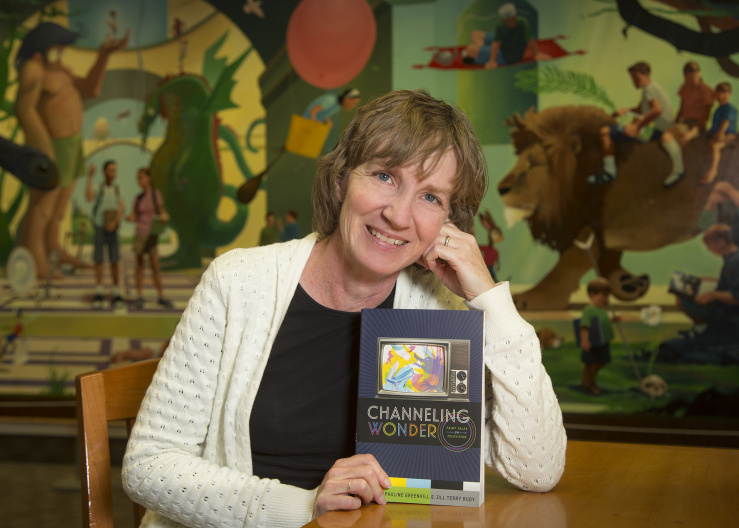The following post was originally published on the BYU American Studies blog. Dr Jill Rudy, the leader of our research team at fairytales.byu.edu, was interviewed by Olivia Nelson about the origins of Rudy’s book “Channeling Wonder,” trends in modern fairytales, and advice for aspiring scholars. Enjoy!
——————————————————————————————————————————–
Channeling Wonder: Jill Rudy
by Olivia Nelson
Once Upon a Time…
In recent years it seems like we can’t turn on the Television without seeing fairytales written into the media.
Dr. Jill Rudy, Associate Professor of English at BYU noticed the fairy tale trend and made it part of not only popular, but academic history. Her recently co-authored book, “Channeling Wonder” explores through several academic essays why stories deemed “traditional” now appear constantly in movies and television.
What encouraged her research was her students. Not particularly inclined to teach fairy tales in her folklore class, students repeatedly asking for fairytales soon changed her mind. In researching fairytales with her students, she began to notice fairytales had infiltrated the media and were starting to bridge the gap between “classic” and “modern”.
Taking the idea with her to a conference, she met her co-author Paulene Greenhill who had some experience researching fairytales and the two decided to document the trend.
Of all the fairytales to enjoy and learn from, Dr. Rudy revealed her two favorite fairy tales to be Snow White and Rose Red, and Baba Yaga. She likes Snow White and Rose Red because she “had sister and liked that it was about sisters. Even then I liked that it said snow white but it wasn’t the usual Snow White story. I liked that story tales could be familiar and do something different.” Stories about Baba Yaga resemble a mix of fairy tales and are exciting to read because of their unpredictability. “Sometimes she will help you and sometimes she will eat you!”
When asked if she had any advice to writers trying to make their break, she responded with wise words of wisdom:
“You have to be willing to get feedback and not go run and hide when somebody says no. Just take the feedback and try again. Go to conferences, pay attention in class. I got my ideas because students were paying attention and helped me see a connection…Know that you need to do your homework…and let your story out.”
Her advice is reminiscent of the fairytales she writes about. Hard work and dedication may just bring a “Happily Ever After”.
As American Studies students, we should thank Dr. Rudy for aiding our studies as we develop our cultural analysis of America.
